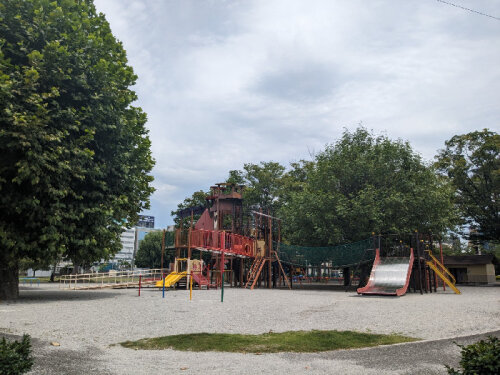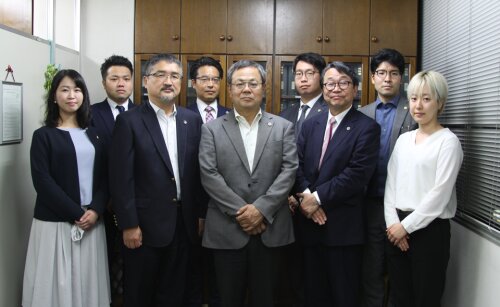Best Motor Vehicle Defect Lawyers in Shizuoka
Share your needs with us, get contacted by law firms.
Free. Takes 2 min.
List of the best lawyers in Shizuoka, Japan
About Motor Vehicle Defect Law in Shizuoka, Japan
Motor Vehicle Defect law covers legal issues that arise when a motor vehicle or one of its parts has a safety defect that causes injury, death, or property damage. In Shizuoka, as elsewhere in Japan, claims may involve vehicle manufacturers, parts suppliers, car dealers, or repair shops. Legal frameworks most often used include the Product Liability Act, general tort rules under the Civil Code, consumer protection laws, and insurance law. Government agencies monitor vehicle safety and manage recalls. If a defect causes an accident or worsens damages, the injured party may seek compensation through insurance claims, negotiation with the manufacturer or dealer, or litigation in civil court.
Why You May Need a Lawyer
You may need a lawyer when a motor vehicle defect has caused harm and the responsible party is not accepting liability, when the compensation offered by an insurer or manufacturer is inadequate, or when liability is disputed. Common situations that call for legal help include:
- Serious personal injury or death linked to a suspected vehicle defect.
- Complex product-defect cases where responsibility may be shared among manufacturer, parts supplier, and repair shop.
- Denied or delayed insurance claims, or disputes over the amount of compensation for injury, lost income, medical costs, or vehicle repair/replacement.
- When you need an expert inspection, technical evidence, or forensic analysis to prove that a defect existed and caused the damage.
- Cases involving recalls where consumers face loss but the manufacturer resists compensation beyond repair or replacement.
- Cross-border or language-complex matters, such as imports, used cars bought from abroad, or if you are a non-Japanese speaker needing help navigating the system.
Local Laws Overview
Key legal concepts and local frameworks relevant to motor vehicle defect cases in Shizuoka include:
- Product Liability Act - This law allows injured persons to claim damages from the manufacturer or importer when a product is defective. A plaintiff generally must show the defect and the resulting damage. Time limits for claims apply, so act promptly.
- Civil Code - General tort liability rules cover negligent manufacture, design, inspection, or repair. Under tort principles, plaintiffs can claim compensation for bodily injury, property damage, and economic loss caused by another party's fault.
- Compulsory Automobile Liability Insurance - In Japan, all motor vehicles must carry compulsory automobile liability insurance. This insurance covers personal injury caused by vehicle accidents, but may not cover all categories of damage.
- Safety Standards, Inspections, and Recalls - The national Ministry of Land, Infrastructure, Transport and Tourism sets vehicle safety standards and oversees recalls. The national Consumer Affairs Agency also manages product-safety reporting and recalls. Local authorities in Shizuoka can assist with reporting and guidance.
- Consumer Protection Laws - For transactions with dealers and repair shops, consumer protection rules may provide remedies for misrepresentation, faulty repairs, or unfair contract terms.
- Administrative and Criminal Law - In cases of serious negligence or willful concealment of defects, criminal prosecution or administrative penalties may be pursued by authorities. Criminal cases are separate from civil compensation claims.
Frequently Asked Questions
What counts as a motor vehicle defect?
A motor vehicle defect is a flaw in the design, manufacture, assembly, or repair of a vehicle or its parts that makes the vehicle unsafe or unsuitable for its intended use. This includes structural failures, braking or steering failures, defective airbags, fuel-system faults, electronic control failures, and defective tires or parts that break or perform unpredictably.
How do I report a suspected defect in Shizuoka?
Preserve evidence first - photographs, videos, repair invoices, and any part that failed. Report the incident to the police if the defect caused an accident. Notify your insurer and the dealer or manufacturer in writing. You can also contact your local consumer center or prefectural office to report the problem to national authorities that oversee vehicle safety and recalls.
Who can be held liable for a vehicle defect?
Liability may fall on the vehicle manufacturer, parts supplier, importer, dealer, or repair shop depending on the source of the defect. Under the Product Liability Act, manufacturers and importers are primary targets. Under tort law, parties can be held liable for negligent design, manufacturing, inspection, or repair.
Do I have to sue to get compensation?
No. Many cases are resolved through negotiation with the manufacturer, dealer, or insurer. Settlement is often faster and less costly than litigation. However, if negotiations fail or liability is disputed, filing a civil claim in court may be necessary to obtain fair compensation.
What kind of compensation can I claim?
Compensation can include medical costs, future medical expenses, lost income, pain and suffering, vehicle repair or replacement costs, and other economic losses directly caused by the defect. The exact scope depends on the facts of the case, the nature of the injuries or losses, and applicable laws.
How long do I have to bring a claim?
Time limits apply. Under product liability rules and tort law there are statutory limitation periods. A common practical rule is to act without delay, because certain claims must be filed within a few years after you discover the damage or within a longer absolute limit measured from when the product was placed on the market. Talk to a lawyer promptly to confirm the applicable deadlines for your case.
What evidence is most important in defect cases?
Key evidence includes accident reports, photographs and video, the defective part itself, maintenance and repair records, purchase and warranty documents, medical records, witness statements, expert inspection reports, and any recall notices. Preserving the vehicle and parts in their post-incident condition is often critical.
Should I get an expert inspection?
Yes. Technical experts or forensic engineers can examine the vehicle and parts to determine whether a defect existed and whether it caused the accident or damage. Expert reports are frequently decisive in proving causation and are important in both negotiations and court cases.
Will my insurance cover damages from a defect?
Compulsory automobile liability insurance covers certain personal injuries resulting from vehicle accidents. Voluntary insurance policies may cover additional losses, depending on the terms. Insurers may seek to recover payments from a responsible manufacturer or party through subrogation. Check your policy and notify your insurer promptly.
How do I find a lawyer in Shizuoka who handles vehicle defect cases?
Seek a lawyer experienced in product liability, personal injury, or automotive defects. Contact the Shizuoka Bar Association for a lawyer referral or consult local legal clinics and consumer centers. Look for lawyers who understand technical evidence and can work with vehicle experts. Ask about fee structures, including contingency arrangements, hourly fees, and initial consultation policies.
Additional Resources
Useful local and national resources include consumer centers in Shizuoka Prefecture and local municipal offices that can advise on complaint procedures. National bodies with roles in vehicle safety and recalls include the authority that oversees vehicle safety standards and recalls and the Consumer Affairs Agency which handles product safety and recall announcements. The Shizuoka Bar Association offers lawyer referrals and can explain local legal procedures. Local courts handle civil claims where litigation becomes necessary. If you are a non-Japanese speaker, look for local legal support services that can provide interpretation or bilingual assistance.
Next Steps
If you believe a motor vehicle defect has caused harm, follow these practical steps:
- Ensure safety and seek medical care immediately for any injuries. Obtain and keep medical records.
- Preserve evidence - do not dispose of or repair the vehicle until advised, if possible. Take clear photographs and save any defective parts.
- Report the incident to the police when an accident or injury is involved, and file a claim with your insurer promptly.
- Notify the dealer and manufacturer in writing, and keep copies of all communications.
- Contact your local consumer center or prefectural office to report the defect and learn about recall information.
- Seek a technical inspection from an independent expert to document the defect and causation.
- Consult a lawyer with experience in motor vehicle defects and product liability to evaluate your case, confirm deadlines, and advise on negotiation or litigation options.
- Consider records organization - keep a dedicated folder with photos, invoices, medical bills, correspondence, and expert reports to provide to your lawyer.
Act promptly - legal rights and remedies can be time-limited, and quick steps will preserve your ability to obtain full compensation. A qualified lawyer can help you understand your options and represent your interests through settlement or court proceedings.
Lawzana helps you find the best lawyers and law firms in Shizuoka through a curated and pre-screened list of qualified legal professionals. Our platform offers rankings and detailed profiles of attorneys and law firms, allowing you to compare based on practice areas, including Motor Vehicle Defect, experience, and client feedback.
Each profile includes a description of the firm's areas of practice, client reviews, team members and partners, year of establishment, spoken languages, office locations, contact information, social media presence, and any published articles or resources. Most firms on our platform speak English and are experienced in both local and international legal matters.
Get a quote from top-rated law firms in Shizuoka, Japan — quickly, securely, and without unnecessary hassle.
Disclaimer:
The information provided on this page is for general informational purposes only and does not constitute legal advice. While we strive to ensure the accuracy and relevance of the content, legal information may change over time, and interpretations of the law can vary. You should always consult with a qualified legal professional for advice specific to your situation.
We disclaim all liability for actions taken or not taken based on the content of this page. If you believe any information is incorrect or outdated, please contact us, and we will review and update it where appropriate.











